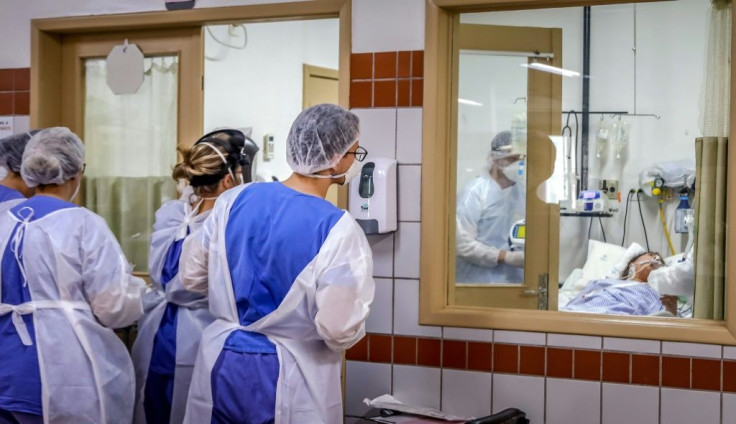94% Of US Coronavirus Cases Suffered Mild To Very Severe Symptoms, Survey Reveals
KEY POINTS
- A recent survey found that a majority of U.S. coronavirus cases caused mild to very severe symptoms
- 81% said they suffered from fatigue, and 75% lost their sense of smell or taste
- The latest model from IHME projects the country's death toll would top 567,000 by April 1
A new survey released Thursday found that a majority of people who were diagnosed with the coronavirus in the U.S. have contracted mild to very severe symptoms, including fatigue and loss of sense of smell or taste.
Researchers with the Societal Experts Action Network contacted 319 people who said they tested positive for COVID-19 in a previous survey to ask about their experiences. Among the those who agreed to participate, 41% said they experienced mild symptoms, 38% reported moderate symptoms, and 16% said they suffered very severe cases.
Among the 94% who were diagnosed with coronavirus, 81% said they suffered from fatigue, 75% said they lost their sense of smell or taste, 71% reported muscle and body aches, and 70% said they developed fever.
Ninety-five percent of the participants said they quarantined at home, while 10% said they were hospitalized. Among those hospitalized, 8% needed oxygen therapy, 5% received chloroquine or hydroxychloroquine, and 4% were given remdesivir or veklury.
Among the COVID-19 survivors who participated in the survey, 54% said the diagnosis caused them to take the virus's threat more seriously, 31% said it made no difference, and 15% noted that the experience caused them take the threat less seriously.
The survey comes as the University of Washington’s Institute of Health Metrics and Evaluation released the latest projection of coronavirus deaths in the U.S. The new model showed that the country’s death toll could top 567,000 by April 1.
The latest model also showed that the number of coronavirus-related deaths could explode to 731,000 by April 1 if states ease current restrictions aimed at curbing the virus's spread.
Researchers at the IHME said the current rollout of vaccines could save more than 33,000 lives, and 45,000 could be saved if the vaccines rolled out faster.
The U.S. has distributed 9.5 million vaccine doses. The Operation Warp Speed initiative also has administered the first shot of the vaccine to more than 1 million Americans as of early Wednesday, according to the Centers for Disease Control and Prevention.
The government said it expects to distribute 20 million first doses of the Pfizer-BioNTech and Moderna coronavirus vaccines in the coming weeks.

© Copyright IBTimes 2025. All rights reserved.






















